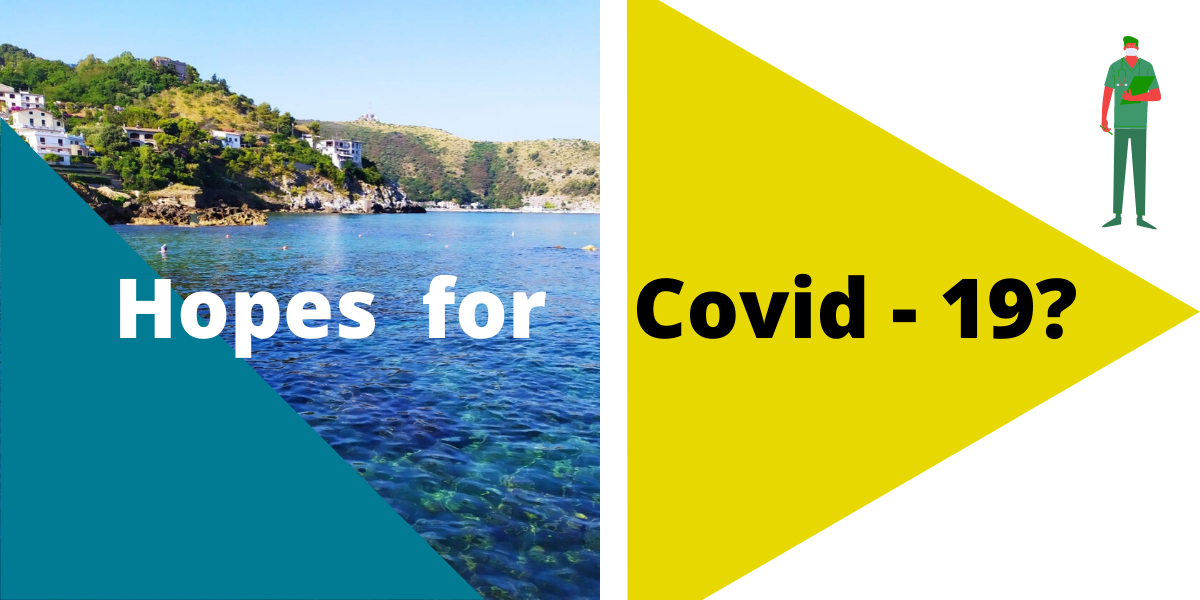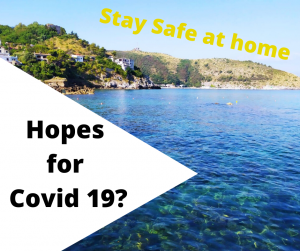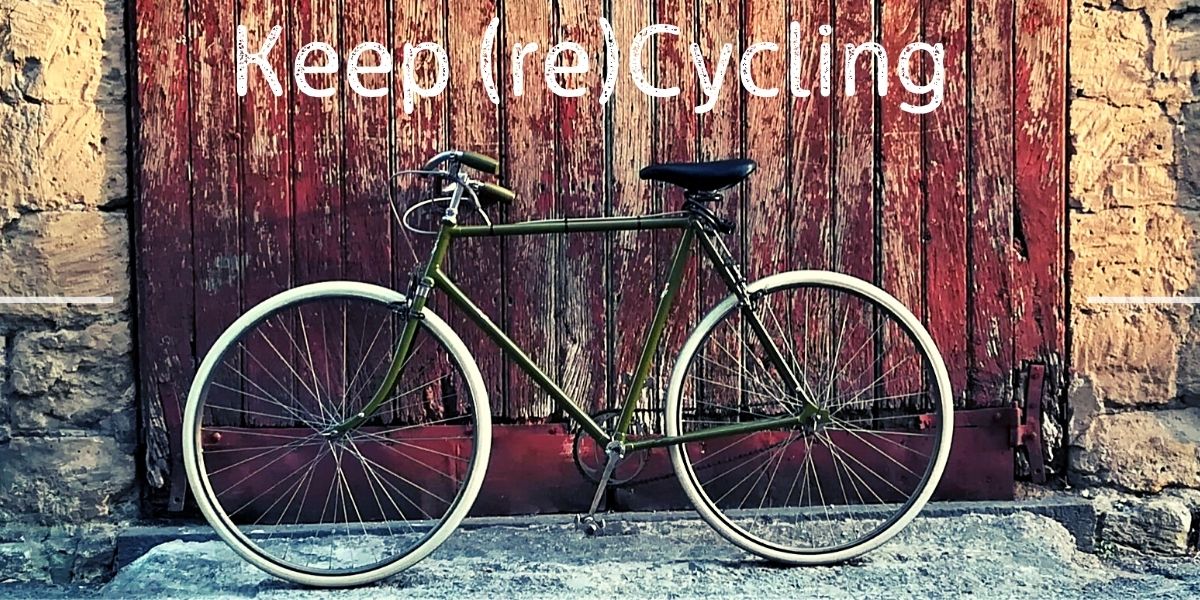Speranze per il Covid – 19 ?

Ci sono delle vere speranze di uscita dal covid19? Numerose ricerche ipotizzano una connessione tra coronavirus, ambiente e stagionalità.
 Sulla base di esperienze passate con altri virus che infettano le vie respiratorie, si è dimostrato che nella nostra area climatica mediterranea le infezioni diminuiscono con l’arrivo dell’estate. Il Covid-19 potrebbe quindi reagire allo stesso modo di altri virus ai cambiamenti climatici?
Sulla base di esperienze passate con altri virus che infettano le vie respiratorie, si è dimostrato che nella nostra area climatica mediterranea le infezioni diminuiscono con l’arrivo dell’estate. Il Covid-19 potrebbe quindi reagire allo stesso modo di altri virus ai cambiamenti climatici?
Purtroppo sono supposizioni. Non ci sono ancora prove concrete per cui il bel tempo possa effettivamente debellare l’epidemia. Inoltre, come afferma l’analista Sara Mazzilli, dottoranda in Data Science applicata all’epidemiologia alla Scuola Normale Superiore di Pisa, seppure esistesse una correlazione tra coronavirus e stagione estiva, non dobbiamo dimenticare che entriamo in contatto per la prima volta con il nuovo virus e che pertanto non abbiamo ancora sviluppato gli anticorpi adeguati per difenderci.
L’unica cosa che possiamo certamente immaginare è che da sempre il clima e soprattutto l’esposizione al sole, influenzano il nostro sistema immunitario, debilitandolo o rafforzandolo. In particolare, secondo diversi immunologi, i livelli di vitamina D sono direttamente proporzionali alla resistenza del sistema immunitario contro virus e batteri.
I ricercatori dell’Istituto di virologia umana dell’Università del Maryland hanno messo a confronto i paesi focolai quali Madrid, Parigi, Milano, Qom, Wuhan, Tokyo, Daegu, evidenziando diversi punti in comune: latitudine, temperature, umidità e livelli di inquinamento. Secondo queste ricerche, le zone di massima diffusione si trovano nella fascia compresa tra 30 e 50 gradi a Nord, le temperature medie invernali si registrano tra i 5 e gli 11 gradi centigradi, il livello di umidità medio tra il 47 e il 75% e i tassi di inquinamento risultano notevoli.
Anche secondo la giornalista Mariella Bussolati, ci sarebbe una “cintura verde” in cui il coronavirus si diffonde di più. >>> Leggi l’articolo.
Moltissime sono le ricerche che provano a capire se concretamente l’estate ci aiuterà a vincere il virus. Indubbiamente trascorrere più tempo all’aperto significa evitare ambienti chiusi e affollati che favoriscono la circolazione dei microorganismi responsabili di infezioni. Inoltre è noto che respirare l’aria di mare e le sue sostanze oligominerali rende le nostre difese immunitarie più efficaci. I sali minerali come iodio, magnesio, cloruro di sodio, calcio e potassio, liberano le vie respiratorie agendo da mucolitici e antinfiammatori.
Con una semplice passeggiata in riva al mare, otteniamo straordinari benefici per allergie, sinusiti, asma, raffreddore, nonché per problematiche causate da fumo o agenti chimici.
Ma tra i benefici del mare, ci sono anche quelli esercitati sulla mente, sullo stress e il tono dell’umore. Rilassarsi al sole ci permette di recuperare le energie, di svagarci e allentare le tensioni, di sentirci più sereni per affrontare la quotidianità.
Usiamo questo tempo prezioso per riflettere sulla nostra salute e sull’ambiente in cui viviamo, di cui probabilmente, abbiamo perso il valore. Ambiente e salute sono facce della stessa medaglia.
Mariella Ciccarino
English Version ⇓
Hopes for Covid – 19?
A number of researches hypothesize a connection between coronavirus, environment and seasonality. The past experience is based on the other viruses that infect the respiratory tract, it has been shown that in our Mediterranean climate area, infections decrease with the arrival of summer.
Could Covid-19 react the same way as other viruses to climate change?
Unfortunately they are postulation. There is still no concrete evidence that good weather can actually cancel the epidemic. Furthermore, the analyst Sara Mazzilli, PhD student in Data Science Applied to epidemiology at the Scuola Normale Superiore in Pisa, says, even if there was a correlation between coronavirus and summer season, we must not forget that we come into contact for the first time with the new virus and that therefore we have not yet developed the appropriate antibodies to defend ourselves.
The only thing we can certainly imagine is that the climate and especially the exposure to the sun have always influenced our immune system, debilitating or strengthening it. In particular, according to several immunologists, vitamin D levels are directly proportional to the immune system’s resistance against viruses and bacteria.
The researchers from the Institute of Human Virology at the University of Maryland compared outbreak countries such as Madrid, Paris, Milan, Qom, Wuhan, Tokyo, Daegu, highlighting several common points: latitude, temperatures, humidity and pollution levels. According to these researches, the areas of maximum diffusion are in the range between 30 and 50 degrees in the North, the average winter temperatures are between 5 and 11 degrees Celsius, the average humidity level between 47 and 75% and pollution rates are remarkable.
Even according to the journalist Mariella Bussolati, there would be a “green belt” in which the Covid 19 spreads more. >>> Go to the article
There are many researches that try to understand if summer will actually help us win the virus. Undoubtedly spending more time outdoors means avoiding closed and crowded environments that favor the circulation of microorganisms responsible for infections. It is also known that breathing the sea air and its trace elements makes our immune defenses more effective. Mineral salts such as iodine, magnesium, sodium chloride, calcium and potassium, clear the respiratory tract acting as mucolytics and anti-inflammatories.
With a simple walk by the sea, we get extraordinary benefits for allergies, sinusitis, asthma, colds, as well as for problems caused by the smoke or chemical agents.
But among the benefits of the sea, there are also those exercised on the mind, stress and mood. Relaxing in the sun allows us to recover our energies, to relax and release tensions, to feel more serene to face everyday life.
We use this precious time to reflect on our health and the environment in which we live, of which we have probably lost value. Environment and health are sides of the same coin.
NZIRIA team home
German Version ⇓
Hoffnungen für Covid – 19?
Zahlreiche Studien vermuten einen Zusammenhang zwischen Coronavirus, Umwelt und
Saisonalität. Aus den Erfahrungen der Vergangenheit mit anderen Viren, die die Atemwege infizieren,
geht hervor, dass in unserem mediterranen Klimagebiet die Infektionen mit der Ankunft
des Sommers abnehmen. Könnte Covid-19 also wie andere Viren auf den Klimawandel reagieren?
Leider istdas eine Vermutung. Es gibt immer noch keine konkreten Beweise dafür, dass gutes Wetter die Epidemie
tatsächlich ausrotten kann. Wie die Analytikerin Sara Mazzilli, Doktorandin in Datenwissenschaften, die sich an der
Scuola Normale Superiore di Pisa für Epidemiologie beworben hat, sagt, dürfen wir,
obwohl es eine Korrelation zwischen Coronavirus und Sommersaison gibt,
nicht vergessen, dass wir zum ersten Mal mit dem neuen Virus in Kontakt sind und daher
noch nicht die geeigneten Antikörper zur Verteidigung entwickelt haben.
Das einzige, was wir uns sicher vorstellen können, ist, dass das Klima und vor allem die
Sonneneinstrahlung unser Immunsystem schon immer beeinflusst und es geschwächt
oder gestärkt hat.
Forscher des Instituts für Humanvirologie der Universität Maryland verglichen Mistländer
wie Madrid, Paris, Mailand, Qom, Wuhan, Tokio und Daegu
und hoben dabei mehrere Gemeinsamkeiten hervor: Breitengrad, Temperaturen,
Feuchtigkeit und Verschmutzungsgrad.
Nach diesen Untersuchungen liegen die Gebiete mit der größten Verbreitung im Bereich
zwischen 30und 50 Grad nördlicher Breite, die durchschnittlichen Wintertemperaturen lieg
en zwischen 5 und 11 Grad Celsius, die durchschnittliche Luftfeuchtigkeit zwischen 47
und 75% und die Verschmutzungsraten sind beträchtlich.
Auch laut der Journalistin Mariella Bussolati gibt es einen grünen Gürtel, in dem
sich das Coronavirus stärker ausbreitet. >>>Lesen Sie den Artikel
Es gibt eine Menge Forschung, die versucht zu verstehen, ob der Sommer uns tatsächlich
helfen wird, das Virus zu gewinnen.
Zweifellos bedeutet mehr Zeit im Freien zu verbringen, geschlossene und überfüllte Umge
bungen zu vermeiden, die die Zirkulation der für Infektionen verantwortlichen
Mikroorganismen fördern.
Es ist auch bekannt, dass das Einatmen der Meeresluft und ihrer oligominalen
Substanzen unsere Immunabwehr wirksamer macht.
Mineralsalze wie Jod, Magnesium, Natriumchlorid, Kalzium und Kalium befreien die Atem
wege, indem sie als Mukolytika und Entzündungshemmer wirken.
Ein einfacher Spaziergang am Meer bringt uns außerordentliche Vorteile bei Allergien,
Sinusitis, Asthma, Erkältungen sowie bei Problemen, die durch Rauch oder Chemikalien
verursacht werden.
Aber zu den Vorteilen des Meeres gehören auch die, die sich auf den Geist, den Stress
und die Stimmung auswirken. Das Entspannen in der Sonne ermöglicht es uns,
unsere Energie zurückzugewinnen, Spannungen abzubauen und dem Alltag gelassener
zu begegnen.
Wir nutzen diese kostbare Zeit, um über unsere Gesundheit und die Umwelt, in der wir
leben und deren Wert wir wahrscheinlich verloren haben, nachzudenken. Umwelt und
Gesundheit sind die Seiten derselben Medaille.
NZIRIA team home





